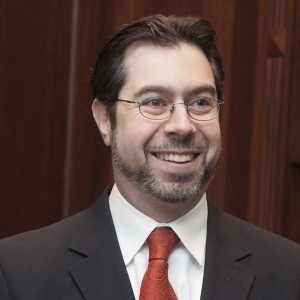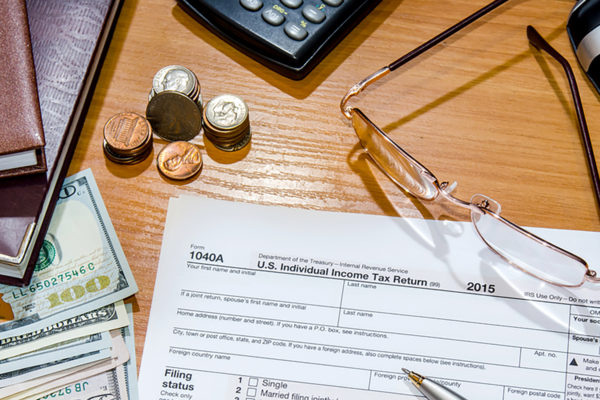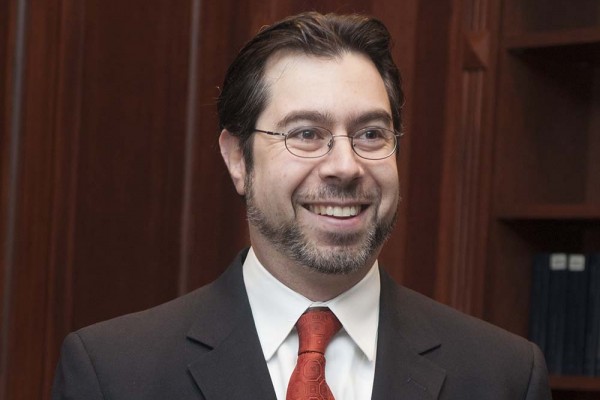Rosenzweig is an expert on issues of international taxation, tax competition, international business and cross-border capital markets. He has published extensively in both student-edited and peer-edited law reviews and tax journals, and is frequently invited to speak on these topics in national media and at forums across the world. He has published articles on issues ranging from corporate inversions, carried interest, tax havens, tax law & development, and the interaction of taxation and international trade.

Adam Rosenzweig
Professor of Law
Contact Information
- Phone: 314-935-4419
- Email: arosenzweig@wulaw.wustl.edu
- Website: Website
Media Contact
In the media
Top 1% of earners don’t pay taxes on one-fifth of income, study finds
Adam Rosenzweig, professor of law
So far, the tax overhaul isn’t living up to many of its promises
Adam Rosenzweig, professor of law
China wants to clean up the skies as part of Trump’s visit
Adam Rosenzweig, professor of law
The IRS brings in private debt collectors
Adam Rosenzweig, professor of law
Look Out For ‘Unintended Consequences’ From Obama’s New Merger Rules
Adam Rosenzweig, professor of law
New tax-inversion rules appear to kill Allergan-Pfizer deal
Adam Rosenzweig, professor of law
Treasury Dept. Goes After Inversions (Podcast)
Adam Rosenzweig, professor of law
Tyco deal shows need for a grand bargain on corporate taxes
Adam Rosenzweig, professor of law
Stories
Kemper Art Museum to present ‘Ai Weiwei: Bare Life’
The newly expanded and renovated Mildred Lane Kemper Art Museum at Washington University in St. Louis will reopen with a major exhibition of work by Ai Weiwei. The renowned Chinese dissident artist and activist is known all over the world for rigorous, compassionate and complex artworks that address themes of political, ethical and social urgency. “Ai Weiwei: Bare Life” opens Sept. 28 and will feature more than 35 artworks created over the last two decades in a wide variety of media — including a handful of newly conceived, large-scale and site-specific projects and major pieces never before exhibited in the United States.
CEOs didn’t ask for this, but they’ll take it to the bank, shareholders
Much of the debate over the Tax Cuts and Jobs Act focuses on whether Congress favors rich corporations over poor people. But an expert on tax law at Washington University in St. Louis asks, what about poor corporations?
WashU Expert: House GOP tax proposal ‘death of neutrality’ for international tax system
The U.S. House of Representatives Republican tax proposal, released Nov. 2, would institute a number of wholesale changes to the American tax code, including the end of neutrality in the international tax system, says an expert on international tax law at Washington University in St. Louis.
WashU Expert: Explaining the Trump tax proposal
President Trump has revealed his proposed tax plan, which involves, among other things, cutting the corporate tax rate and reducing tax brackets to three, down from seven. What do the proposed changes mean? Adam Rosenzweig, professor of law and tax law expert, explains.
WashU Expert: Treasury should work within existing rules to close tax loopholes
The U.S. Treasury Department has issued several rules recently aimed at cracking down on tax evasion and money laundering in the wake of the “Panama Papers.” Will continuing to add new, and increasingly aggressive, rules make any lasting or concrete changes to the American tax code? Maybe, but perhaps at a cost to the tax law as a whole, says Washington University tax expert Adam Rosenzweig.
WashU Expert: Pfizer deal marks the end of U.S. ability to stop corporate tax inversion
U.S. pharmaceutical giant Pfizer announced Nov. 23 a record-breaking $160 billion merger with Irish firm Allergan, the biggest merger to date involving the controversial strategy of tax inversion. The move marks the beginning of the end of the ability to stop corporate tax inversions under current tax rules, said Adam Rosenzweig, JD, professor of law and an expert on international tax law at Washington University in St. Louis.
Wash U Expert: Tax reform not possible in the short term
Though the rhetoric in Washington, D.C., may seem to
favor a push on progress, broad-based individual tax reform is not
possible in the short term, though other opportunities for reform may
still exist, says an expert on federal income tax and tax law at Washington University in St. Louis. Adam Rosenzweig, JD, discusses the possibility of tax reform in the lame-duck session.
Wash U Expert: Regulations on tax inversions a move in the right direction
The U.S. Treasury Department has taken action to
curb corporate tax inversions, making it more difficult to for U.S.
companies to merge with international firms and move abroad to reduce
their taxes. This move attempts to combat specific abuses within a
flawed framework, according to an international tax law expert at
Washington University in St. Louis School of Law.
Wash U Expert: High stock prices, low interest rates cause uptick in corporate tax inversions
The United States has the highest corporate income tax rate in the developed world. As
a result, many U.S. companies are turning to tax inversions —
reincorporating overseas by getting acquired by a smaller company in a
country where the corporate tax rate is lower. Adam Rosenzweig, JD, professor of law and expert on international tax, examines why inversions are becoming so popular.
Wash U Expert: Time to raise the gasoline tax?
Falling oil and gasoline prices have prompted some in Congress to debate about increasing the federal fuel tax, which helps fund highway and bridge construction, among other projects. Increasing
the tax, which hasn’t been raised since 1993 and isn’t tied to
inflation, to help offset revenue lost through lower prices at the pump
may seem like a good idea in theory, but it’s much more difficult in
practice, says tax law expert Adam Rosenzweig, JD, of Washington University in St. Louis.
Exploring the tax aspects of the Affordable Care Act decision
“Chief Justice Roberts’ opinion on the Affordable Care Act mostly conforms with the way I previously understood the taxing power of the federal government,” says Adam Rosenzweig, JD, tax law expert and associate professor of law at Washington University in St. Louis. Rosenzweig says that there were two important pieces of the Roberts opinion from a tax standpoint.





